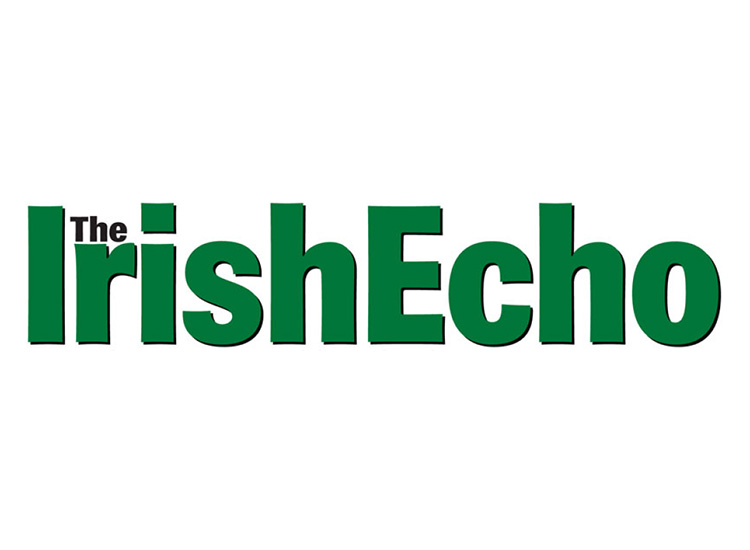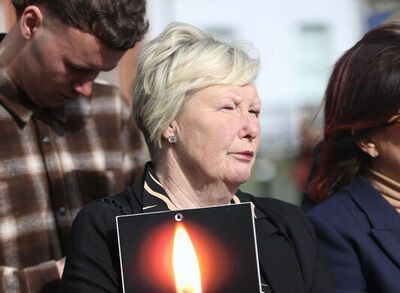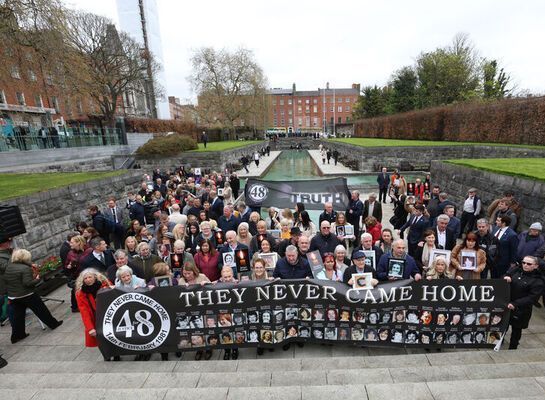[caption id="attachment_69427" align="aligncenter" width="600" caption="Alan Shatter."]
There are wheels within wheels in this one. The ongoing legal saga surrounding the Boston College Troubles archive reaches a new high this week in a Boston-area courtroom.
Across the water, meanwhile, the drama has been played out, albeit in a slightly different archival context, at the upper reaches of Irish politics.
The archives being battled over in Boston are testimonies given to the compilers by republicans and loyalists who were central figures in the Troubles.
There is, however, another aspect to the Burns library archival horde in the form of private and confidential documents related to arms decommissioning and it is this that led in recent days to a spat between Irish justice minister Alan Shatter and Fianna Fáil leader Micheál Martin
As Irish Times political correspondent Deaglán de Bréadún reported, Shatter accused Martin of making "off-the-wall" statements and scoring a "bizarre own goal" over documents from the Northern Ireland peace process.
Shatter, according to the times report, was responding to an attack on him by Martin over the transfer of private and confidential documents on arms decommissioning in Northern Ireland to Boston College.
The move has been described by the Fianna Fáil leader as "ill-considered" and potentially damaging to the peace process.
Reported the Times: "He (Martin) called on Mr. Shatter 'to clarify why exactly he agreed to donate documents from the Independent International Commission on Decommissioning, the body appointed in 1997 to oversee the process of putting 'beyond use' weapons used in the Northern Ireland conflict, to Boston College.'"
And Martin added: "For reasons of security and safety it is imperative that these papers are not made public for a sufficient period of time. What is of major concern is that these papers have been given to an institution outside the island of Ireland which is now involved in a major controversy about protecting the integrity of its sealed archive."
Referring to the ongoing case, Martin suggested that Boston College might be compelled to open its archive on the Northern Ireland Oral History Project directed by journalist Ed Moloney and involving researcher Anthony McIntyre. As a result, clarity was now urgently needed as to whether this had implications for the papers of the decommissioning body also deposited in Boston College.
Martin simultaneously made the point that the papers should have been given to an archival institution on the island of Ireland.
Said Martin "These papers catalogue the details of the engagement of paramilitary groups with the decommissioning process and for reasons of security and safety it is imperative that these papers are not made public for a sufficient period of time.
"Boston College is an excellent institution with an excellent track record of interest in and support for Irish affairs.
"However, the fact that there is a question mark over the ability of Boston College to protect sensitive political papers in their archives from premature release is an issue of real concern.
"Alan Shatter needs to clarify on what basis he agreed to give hugely sensitive papers relating to the decommissioning process in Ireland to Boston College rather than entrust them to the Irish National Archives.
"He needs to explain whether there are implications for the decommissioning papers arising out of the legal proceedings ongoing in the United States.
The Times reported Shatter's reaction. The minister described Martin's comments as "astonishing" and "disingenuous, inaccurate and misleading. He said it was the decommissioning body itself which made the arrangements in consultation with the last government, whose members included Mr. Martin as minister for foreign affairs.
"It is unfortunate that Micheál Martin should seek to make a political football out of issues relating to the commission, whose work had the full support of all major parties then represented in Dáil Éireann," said Shatter.
"It is doubly unfortunate that, motivated by blatant political opportunism, he then proceeds to score a bizarre own goal, the plain fact being that the issues in question were ones that were dealt with by the Fianna Fáil-led government of which he was a member, and by his ministerial colleagues.
"The consultations about the disposal of the archive were complete before I assumed office and the first I learned of the archiving arrangements was when the commission detailed them in their report of March 28th, 2011." The Minister added: "If any issues arise in relation to the commission's documentation they will be dealt with appropriately.
"Of course, that process will not be helped by off-the-wall statements made by Deputy Martin which are rooted in the pattern of willful amnesia he continues to display in relation to his own time in government."
Shatter said he understood that the material in question was of a general nature and did not contain sensitive information in relation to individuals. His department and the Northern Ireland Office had been monitoring the situation in relation to the current (court) proceedings and would remain in contact.
One can only wonder. Regardless of political charge and counter charge the readers of this report were presented by Shatter and Martin with "private and confidential documents related to arms decommissioning," or material of a "general nature" devoid of "sensitive information."
So which is it?
ILLEGAL AVIAN
A bird that is commonly found in Ireland is causing something of a sensation in New Jersey. The Star Ledger reported that birders have been traveling from all over to see a Chaffinch that has been visiting garden feeders in the western part of the state.
The daily reported that the wayward finch, which ranges across western Europe as well as Ireland and Britain, has been visiting a backyard feeder in Pattenburg.
Of course, it's impossible to say whether or not the bird originated in Ireland though this is more likely than some other points of origin given the lesser distance. Finches, unfortunately, do not sing with distinctive accents. If Irish however, there is a question to be asked. Does it have an E-Tweet visa?










